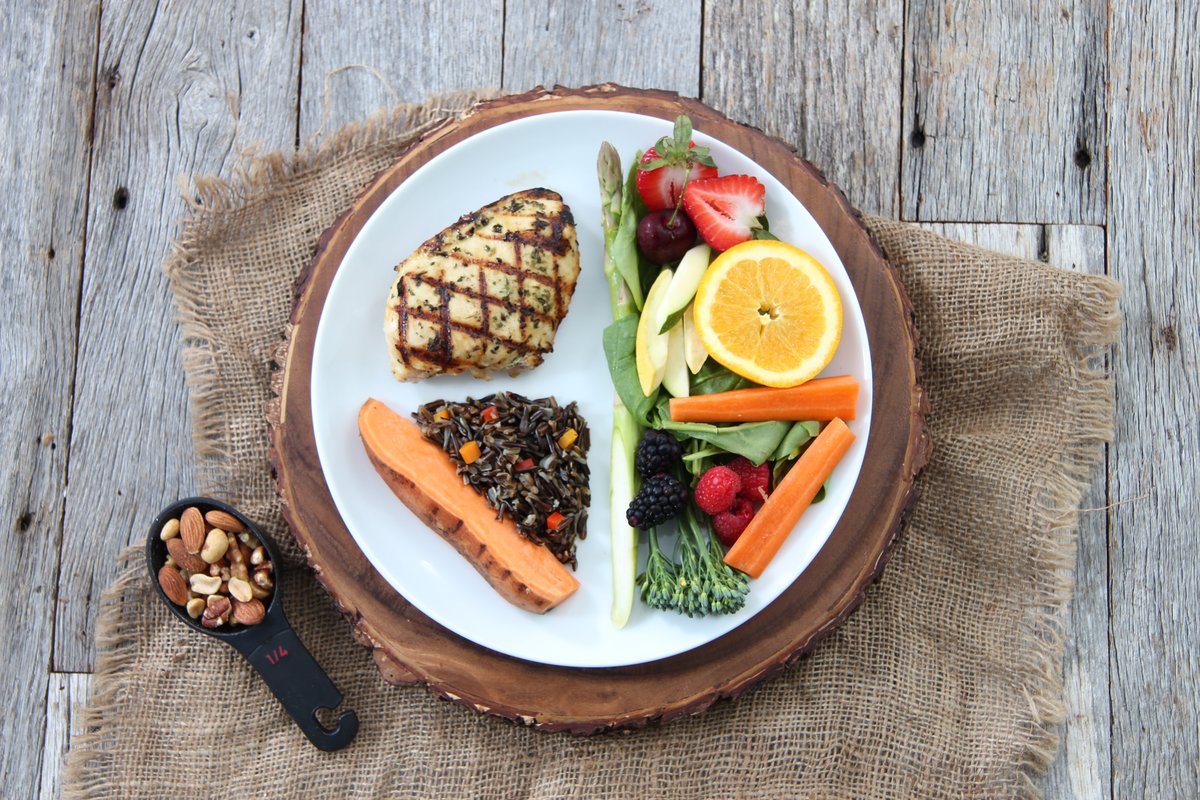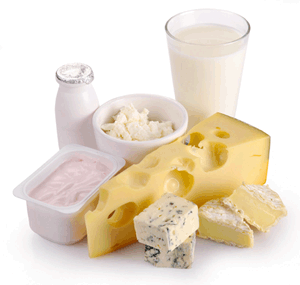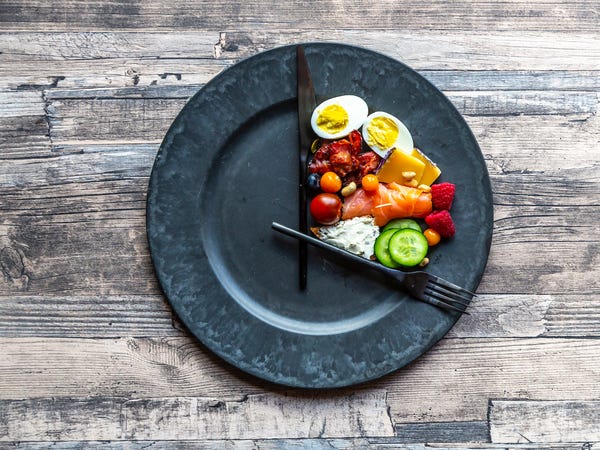9 Mistakes Eating The Mediterranean Diet
Dec 21, 2020

In the Mediterranean diet. You can get the basic of understanding of how it works.
But let's take a close look at some common error many people make when which backtrack your results.
Mistake #1. Ignoring Portion Control (You can eat too much "healthy" food)

Even when we’re talking about smart fats, such as olive oil and nuts, portion control is always important, especially if you’re trying to lose weight.
There’s no need to put a hard limit on daily servings of vegetables (you won’t overdo it because you’ll naturally fill up on fiber), but it is possible, for instance, to overeat walnuts or almond butter, or use too much olive oil, particularly if you’re dipping pieces of bread into it.
Be mindful. (And for the record, one serving of nuts is about 1 to 2 handfuls, the amount you can hold in the palm of your hand, and a serving of olive oil is typically 1 to 2 tablespoons per person per dish.)
Mistake #2. Overdoing Grains and Cereals (including bread and pasta)

Because most of us aren't as active as our Mediterranean counterparts, we can’t justify serving ourselves enormous portions of grains and cereals. Unlike them, we haven’t “earned” larger servings. The Mediterranean diet has been eaten traditionally by people who were physically active most of their waking hours—not just fishermen and farmers but also city dwellers who walk everywhere.
When you see grains and cereals on the Mediterranean diet, this doesn’t mean a giant platter of pasta, unlimited bread (even if it’s organic and whole grain), or bowls of rice (even if it’s brown rice).
It’s important to control your portions of grains and cereals (And incidentally, even those farmers and fishermen aren’t eating super-sized American portions of pasta, polenta, and rice.)
Mistake #3. Not Eating Enough Fish & Seafood

Eating fish merely a few times a month won’t yield the disease-fighting benefits of the Mediterranean diet, particularly for the heart and brain.
Aim for seafood at least twice a week—preferably three to five times per week.
And if you are vegetarian, or you’ve declared yourself to be a person who “hates” seafood, in the name of your health and longevity, it is possible to supplement with fish oil or seaweed oil.
However, in most studies, the long-chain omega-3 fats you get from consuming fish and shellfish—as well as foods such as seaweed—are more beneficial to your brain and body than such supplements alone.
Mistake #4. Thinking that all cheeses (and yogurts) are created equal

Dairy isn’t heavily emphasized on the Mediterranean diet, but it is a healthy part of it.
However, treating pasteurized cheese as a go-to food—compared, for example, with raw, probiotic-rich and vitamin K2-loaded camembert—is a mistake.
A cellophane-wrapped, mass-produced cheese stick might have to do if you’re stuck without any other food and your blood sugar is on a roller-coaster ride, but it’s not as nutrient-rich (or as deliciously satisfying) as a small serving of the camembert—or a bit of fresh mozzarella, aged manchego, or tangy feta.
The same goes for yogurt. Sugary, artificially flavored yogurt hardly has anything in common—or any benefits, especially for your gut health—compared to plain Greek-style yogurt or kefir that you can flavor yourself with fresh fruit, some walnuts, and optionally, a bit of honey.
Many people are shocked when fruit-flavored yogurt has more sugar than ice cream. As with so many components of the Mediterranean diet, when choosing your foods, simple is best.
Mistake #5. Skipping Meals

As with fish, many folks forgo the beans:
"They take too long to make… They give me gas… I don’t know which ones to buy… I don’t like them… Paleo diets forbid them…."
Don’t miss out on this fiber-packed superfood that, as you’ll learn later, is one of the best foods for controlling blood sugar, and it’s the #1 all-time top food for blocking disease-causing oxidation.
In Mediterranean cuisine, beans can become the healthy foundation for countless meals. but you can enjoy some Mediterranean flavors at your next lunch or dinner without a lot of effort.
Try this simple idea now: Combine mixed greens with canned garbanzo beans, halved cherry tomatoes, some slivers of red onion, and a handful of fresh herbs. Squeeze some fresh lemon on top, drizzle with extra-virgin olive oil, toss to combine, and season to taste with sea salt and freshly ground pepper. You can add some sliced chicken, a hard-boiled egg, or some fish for added protein.
For a Greek twist, use some olives and a touch of crumbled feta.
Mistake #6. Taking shortcuts with processed foods

Canned beans are but one example of a healthy shortcut you can take on your way to a Mediterranean diet, especially if you’re pressed for time.
But a fast-food fried fish sandwich is not, nor is a pepperoni pizza, or that box of garlic-flavored instant couscous. Refined carbohydrates, unhealthy fats such as trans fats, and risky preservatives, artificial sweeteners, and other chemical additives that can damage your health are impossible to avoid if you eat processed foods—and some people do so because they’re rushed at mealtime.
But buying the additive-packed “instant” version or choosing fast food as a shortcut is a bad bet in the long run. Chemically loaded processed foods are not a part of a Mediterranean diet. (And canned beans are not a processed food—but they are a healthy option that will save you hours of cooking time.)
Mistake #7. Drinking too much wine (and not enough water)

Alcohol is not a staple of the Mediterranean eating style, though much has been made of its benefits. However, understand that the only alcohol with proven health benefits is red wine.
Not beer, not gin, nor tequila. And white wine has fewer benefits than red wine. Yet, red wine only provides health benefits if it is consumed in moderation.
Enjoy a glass or two with dinner, but quench your thirst with water. In Mediterranean Europe, diners go through more bottles of mineral water than they do wine—and not just in the hot summer months. But filtered tap water works just as well!
Mistake #8. High-heat cooking with extra-virgin olive oil

Don’t use extra-virgin olive oil for high-heat cooking, or even medium-high heat.
Once it reaches 400 ° F—its smoke point, the maximum temperature it can reach before it breaks down and becomes a damaged fat—extra-virgin olive oil starts losing nutritional value, not to mention its complex and delicate flavors.
Even worse, heat-damaged oils oxidize and become pro-inflammatory. Overheating good olive oil is not just a health risk; it’s also a waste of money.
Save flavorful extra-virgin olive oil for drizzling over foods and making dressings, and use virgin olive oil and a handful of others (such as avocado and/ or almond oil) for medium-high cooking.
Mistake #9. Limiting your plate

One reason it’s easy to adapt the Mediterranean diet to our American palate is that we’re already enjoying some of these flavors.
We are, after all, a nation of immigrants (many of whom came from not only southern Italy, Spain, France and Greece but also Turkey, the Middle East, and Northern Africa), and as a nation we celebrate many traditional cuisines.
Garlic—one of the hallmark flavors of this food and a powerful anti-inflammatory—is hardly an exotic ingredient! Still, don’t limit yourself to the “safe” and familiar flavors of Mediterranean cuisine from Western Europe.
Remember the influences from North Africa, Turkey, Israel, and other Middle Eastern regions, where you’ll find spices such as inflammation-fighting turmeric and gut-healthy fermented foods like kefir (which originated in Russia). Tomatoes, chili peppers, sweet potatoes, avocados, dark chocolate, and many other beneficial foods originally hail from Southeast Asia, Africa, Latin America, and parts of the globe that are far from the Mediterranean.
If you remain open to new flavors and ingredients with proven health benefits, you’re not only broadening your palate and enjoying new foods, you’re increasing your chances of preventing chronic disease and living a longer, happier life.
To Sum It Up
You can know what to eat in the Mediterranean diet.
But there are going to be common mistakes that can happen when getting started...
...and you wont even know it.
It's important that you don't make these "9 Mediterranean diet mistakes" because you won't feel, it's not working for you if you are not aware.
How to get started?
If you like the Mediterranean diet and want more recipes like this?
We do recommend registering for The Mediterranean Inner Recipe Club. It's a weekly Mediterranean Meal Plan, grocery lists and over 200 recipes to help you get started.
Let us take all the hard work out of the Mediterranean diet for you!
Hundreds of women are experiencing the same struggle you’re going through right now.
Want over 200 Mediterranean recipes and meals that's planned for you?
© {2021} The Mediterranean Eats. All rights Reserved | Privacy Policy | Disclaimer




